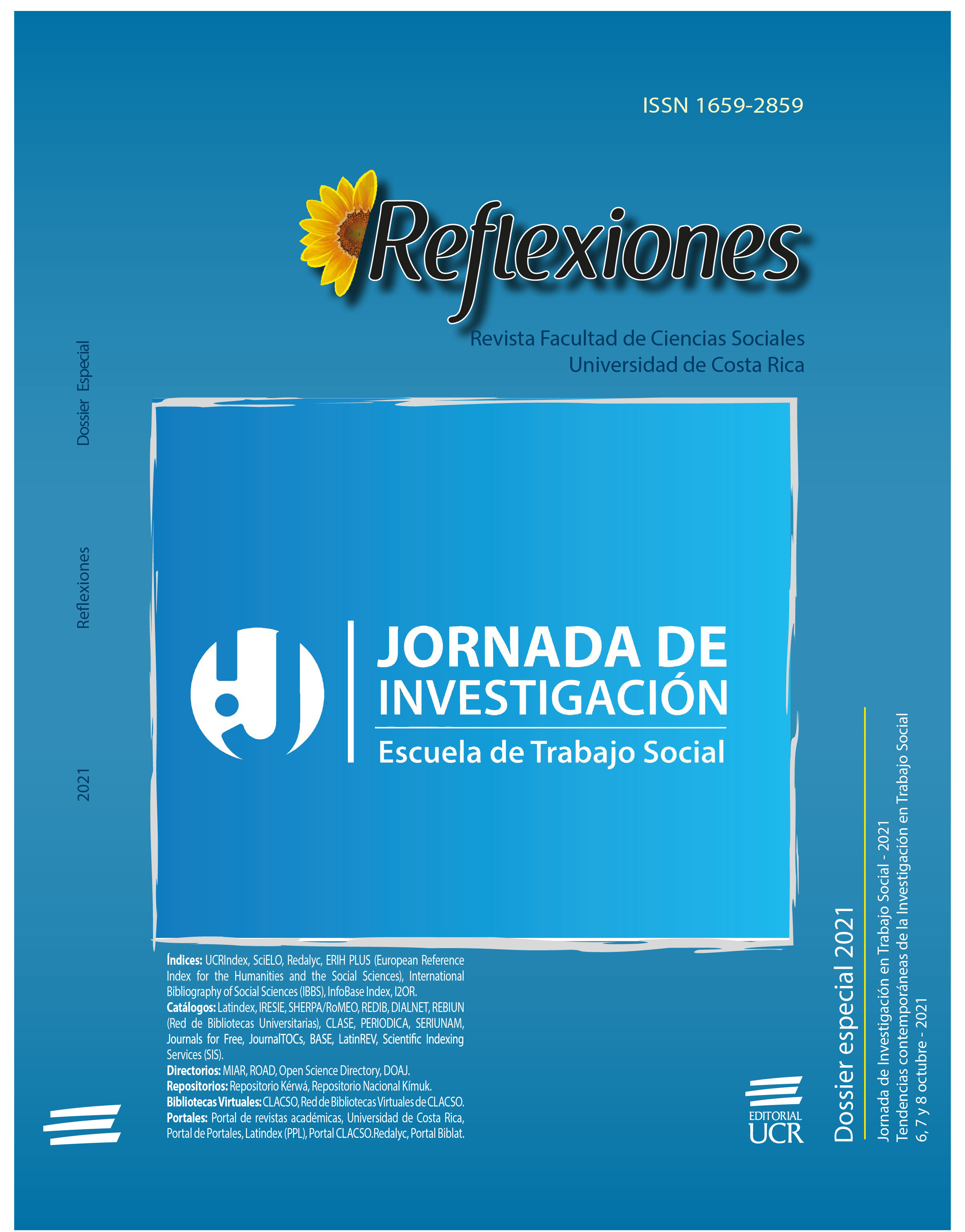Abstract
Introduction:
The research analyzes the experience of people who live on the street, and that due to the syndemic produced by the SARS-CoV-2 virus in the world, in particular in the city of Temuco in Chile, they have had to live within hostels and/or shelters, which were from being temporary to permanent devices.
Objective:
Understand the ways in which people in street situation appropriate the spaces of a hostel or shelter, which in an unplanned way and without being the objective of these, begin to carry out therapeutic processes, and recognize the practices in their daily life.
Method:
Qualitative research, with an ethnomethodological perspective. An intentional sampling is considered, using as information production techniques, the in-depth interview and participant observation.
Result:
It accounts for the changes in personal aspects, in the processes of connection and motivation to maintain their improvements for as long as possible, leaving the consumption of alcohol and/or drugs and resuming their health processes, taking responsibility for the spaces, making decisions and developing routines that were not planned.
Conclusions:
Generating spaces realizes us that people who live on the street do not enter their harmful behaviors into this space, they agree that not having to go out on the street does not make consumption necessary of alcohol and/or drugs, that they can project their life beyond the street, that the processes of self-exclusion or isolation are demolished when they share their experiences with others and they found an opportunity with the syndemic.
References
Bachiller, Santiago. 2010a. «El Aislamiento Social Como Supuesto Articulador De Las Teorías Sobre La Exclusión Y El Sinhogarismo: Críticas Y Aportes Etnográficos». Cultura, Hombre, Sociedad (CUHSO), 19, N°1: 9-21.
Bachiller, Santiago. 2010b. «Exclusión, asilamiento social y personas sin hogar. Aportes desde el método etnográfico». EKAINA, 63-73.
___ 2013. «Un análisis etnográfico sobre las personas en situación de calle y los sentidos de hogar». Sociedad e Cultura, 16(1): 81-90.
https://www.redalyc.org/pdf/703/70329744009.pdf
Berho, Marcelo. 2010. «Dos relatos, un análisis y un excurso sobre las identidades y la relación con la ciudad entre los "moradores de la calle" en Temuco». Cultura, Hombre, Sociedad (CUHSO), 19, N°1: 23-34.
De Certeau, Michel. 2008. «Andar en la ciudad». Bifurcaciones, 7, Nº28: 9-26. http://www.bifurcaciones.cl/2008/06/andar-en-la-ciudad/
Forray Claps, Rosanna. 2015. «La crítica de la vida cotidiana y los "post-urbanismos"». En Lefebvre revisitado: Capitalismo, vida cotidiana y el derecho a la ciudad, editado por De Mattos Carlos y Felipe Link. 129-156. Santiago, Chile: RIL Editores.
Fuentes Escalona, María Paz. 2013. «La Calle desde la calle: análisis de la experiencia urbana a partir de los desplazamientos de personas en situación de calle en Santiago de Chile». Tesis de Maestría, Pontificia Universidad Católica de Chile. http://estudiosurbanos.uc.cl/images/tesis/2014/MDU_MPaz_Fuentes.pdf
Gupta, Akhil y James Ferguson. 2008. «Más allá de la "cultura": Espacio, identidad y las políticas de la diferencia». Antípoda, N°7: 233-256. https://doi.org/10.7440/antipoda7.2008.10
Jiménez Ramírez, Magdalena. 2008. «Aproximación teórica de la exclusión social: complejidad e imprecisión del término. Consecuencias para el ámbito educativo». Estudios Pedagógicos XXXIV, Nº1: 173-186.
Leyton Navarro, Cristian y Gianinna Muñoz Arce. 2016. «Revisitando el concepto de exclusión social: su relevancia para las políticas contra la pobreza en América Latina». Revista del CLAD Reforma y Democracia, 39-68.
Nuñez Matus, Carla. 2013. «Mujeres en situación de calle más allá del andar cotidiano». Sociedad & Equidad. Nº 5: 188-212.
Ortner, Sherry. 2016. «Poder y proyectos, reflexiones sobre la agencia». En Antropología y teoría social. Cultura poder y agencia, 151-177. Buenos Aires, Argentina: UNSAM.
Palleres, Griselda. 2010. «Resignificación socioespacial y construcción de subjetividad. Personas sin hogar en la ciudad de Buenos Aires». Cultura, Hombre, Sociedad (CUHSO), 19, N°1: 95-104. https://doi.org/10.7770/cuhso-v19n1-art313
Seidmann, Susana y Gustavo Rigueiral. 2020. «Hábitat en personas en situación de calle». Perspectivas: Revista científica de la Universidad de Belgrano, 3, Nº1: 107-115.
Segura, Ramiro. 2017. Vivir afuera: Antropología de la experiencia urbana. San Martín, Argentina: UNSAM EDITA.


